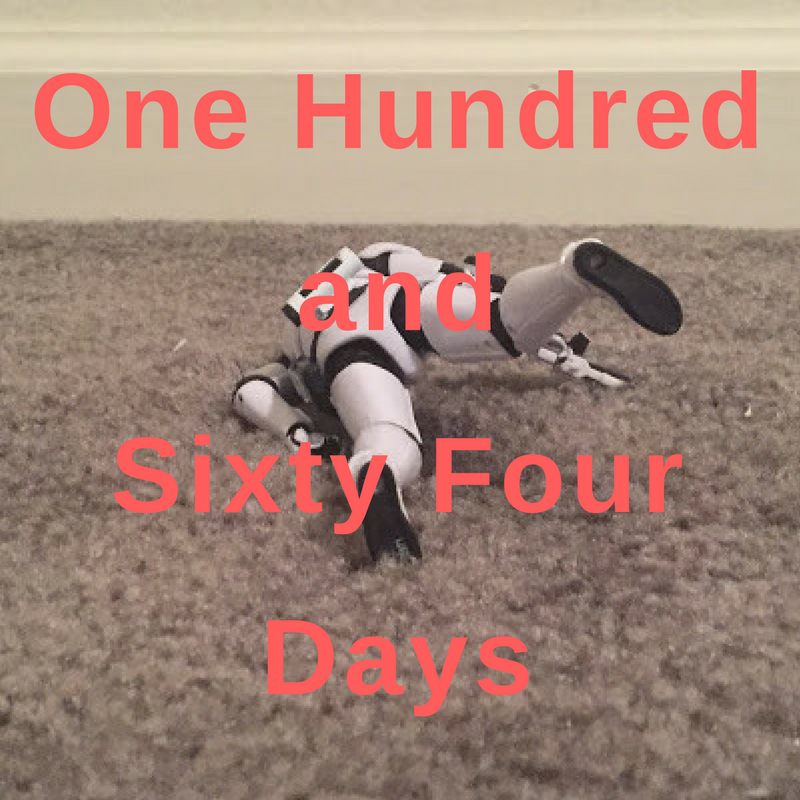And though I once preferred a human being's company

Apollo 18
I would argue that
Apollo 18 is pound-for-pound a much stronger album than
Flood - more focused, more precise, with better hooks and the first stirrings of a real, muscular rock sound. It's definitely a confident album. If
Flood was tentative, defined as much by its missteps as by its successes,
Apollo 18 represents a band far more comfortable with their larger canvas afforded by dint of being signed to a subsidiary of one of the world's largest media conglomerates. All things being equal, this is one of the very strongest records in their catalog.
Perhaps you can sense a "But . . ." coming.
If you know They Might Be Giants, you can probably guess exactly where this is going. There's one giant pink elephant in the room for any discussion of
Apollo 18 - a moment where the album takes a step away from being a stone-cold five-star classic and instead becomes something far weirder and less immediately palatable. That moment is, of course, "Fingertips," a 4:35 long collage of 21 song fragments - that is, fragments of hooks, verses, or sound effects from hypothetical songs. Conceptually, it's a nod to the Residents' 1980 release
Commercial Album, albeit even more manically demented. It's something that only a hardcore fan could truly love - but since most They Might Be Giants
are fairly hardcore, this hasn't usually been a problem. Really, TMBG aren't Pearl Jam: they're not a band you can sort-of like in a vague way. You either like them a lot or not at all, and if you like them a lot there are good chances you
really like them a lot, and therefore will find even their most pointedly unpleasant experiments interesting and even lovable. The problem begins at the moment when their reliance on the good-will of their hardcore fanbase becomes a commitment to schtick for the sake of schtick. You can see the first stirrings of subsequent dissatisfactions on "Fingertips."
But with all of that said, I'm still one of those guys who knows all of "Fingertips" backwards and forwards, from "Everything is Catching on Fire" all the way through the incredibly grating "I Walk Along Darkened Corridors" (one of the all time best shower singing songs, simply by dint of the fact that it can in theory loop forever on that same repeated phrase). The fact that they
didn't end the album with "Fingertips," that they appended another song, "Space Suit," to the end, and the fact that "Space Suit" is one of the band's all-time best compositions - all of these are reasons why They Might Be Giants remain one of the most simultaneously rewarding and frustrating bands in town. They're gifted songwriters and incredibly capable musicians who remain wedded to juvenilia as a way of life. It never quite reaches the level of regrettable sophomoric humor, because they don't have it in them to go blue and their music is never less than resolutely good-humored. But that lack of edge certainly creates as many problems as it solves - even when being nasty might be funnier than being snarky, they can only very rarely pierce the veil of Maya that separates their songwriting from sincerity. (Of course, those moments when they do manage to pierce the veil are always worth noting.)
From the very beginning of the album, there is a noticeable emphasis on rock - they had always been a rock band, obviously, but they had only rarely ever
rocked before, if you can see the difference. It's worth noting that the
Apollo 18 tour was their first with a real live drummer, and it's fairly obvious that many of the drum tracks on this album were written with a live percussionist in mind (or, at least, were written to approximate the effect of a live percussionist, which isn't an effect for which they had ever particularly strove until then). This trend would come to fruition on their next album,
John Henry.
Once you move past the
de rigeur observation of "Fingertips," it's really hard to pinpoint anything resembling a lapse throughout the whole album. "Dig My Grave" and "I Palindrome I" provide a suitably energetic and even -
heavens! - aggressive introduction to the leaner, meaner They Might Be Giants. The vaguely glam rock feel of "Dig My Grave" is echoed later in the album on "See the Constellation." The core of the album is a remarkable run that begins after the strangely heartfelt "Mammal" (about, you guessed it, mammals), with "The Statue Got Me High," continues through "The Guitar" on through fan-favorite "Dinner Bell" (about, you probably
didn't guess, Pavlov's experiments in conditioned reflex behavior), and finally climaxes with the remarkable "Narrow Your Eyes." The reason why "Narrow Your Eyes" is perhaps the highlight of the entire album is that this song represents one of their first attempts at writing a "real" song, a song without any kind of cutesy gimmicks or narrative conceits or schlocky jokes. It's just a song about a guy who can't get off the bus because the bus stop reminds him of his ex-girlfriend. It's got a strong melody and one of Flansburgh's most affecting vocal performances. It is one of their best songs, full stop.
If you've been reading these reviews as I've been posting them, you've probably already picked up on the main theme of my assessment of the band's catalog: the tension between cloying juvenilia and grown-up songs. This might strike many of you as unnecessarily pedantic, not to mention besides the point: after all, isn't the point of They Might Be Giants precisely in the fact that they steadfastly refuse to grow up, that they insist on writing songs about science and puns long past the point when they should by all rights have graduated to writing about love and politics and all that jazz? There is certainly a part of me that is sympathetic to that criticism. After all, one of the benefits of listening to their albums after all these years is their uncanny ability to recreate the emotions and sensations of being younger, of growing up. Even if you weren't a kid when you heard these albums for the first time, they retain the ability to put you into a kid's mindset - with all that entails both good and bad.
For me, I can't hear
Apollo 18 without thinking about both the 1992 LA Riots and Philip Jose Farmer's
Riverworld books. I bought the album on April 29th, 1992 - it had been released in March but since I lived in the sticks it was a while before I heard there was a new album and was able to get into town to buy it. (The now-defunct Wherehouse Music store in Reno, Nevada, in case you were wondering.) That was the day of the LA Riots, so when we got back to town from Reno the TV was full of images of Southern California in flames. This was also the spring I first read
To Your Scattered Bodies Go, and I specifically remember many long hours spent reading
To Your Scattered Bodies Go with
Apollo 18 on the headphones. Good times.
They Might Be Giants have proudly worn the badge of the Worlds' Biggest Nerds for decades now, and it's part of who they are as musicians - hyper-literal, ready to make bad jokes at the expense of good songs, unable to pass up the opportunity to mug for the camera. The problem is that there are a handful of moments scattered throughout their history where they show that they are capable of doing more than that. They're not "Weird" Al: they don't just do parodies, they aren't just immaculately turned-out jokesters. They can write real songs about real people, emotions and experiences. That they choose not to do so very often forces their audience to make a choice: either you accept their "serious" songs as inessential stylistic outliers next to the main business of being bratty and precocious fiftysomethings, or you listen to songs like "Narrow Your Eyes" and "The End of the Tour" and "Pet Name" and realize that - for whatever reason - they're consciously holding themselves back. And that's the point where their jokes become just a little bit less funny, when you realize that the conscious decision to remain in a state of arrested development has done as much to limit their development as it has to advance their career.
Next: Man vs. Machine





(out of five)




